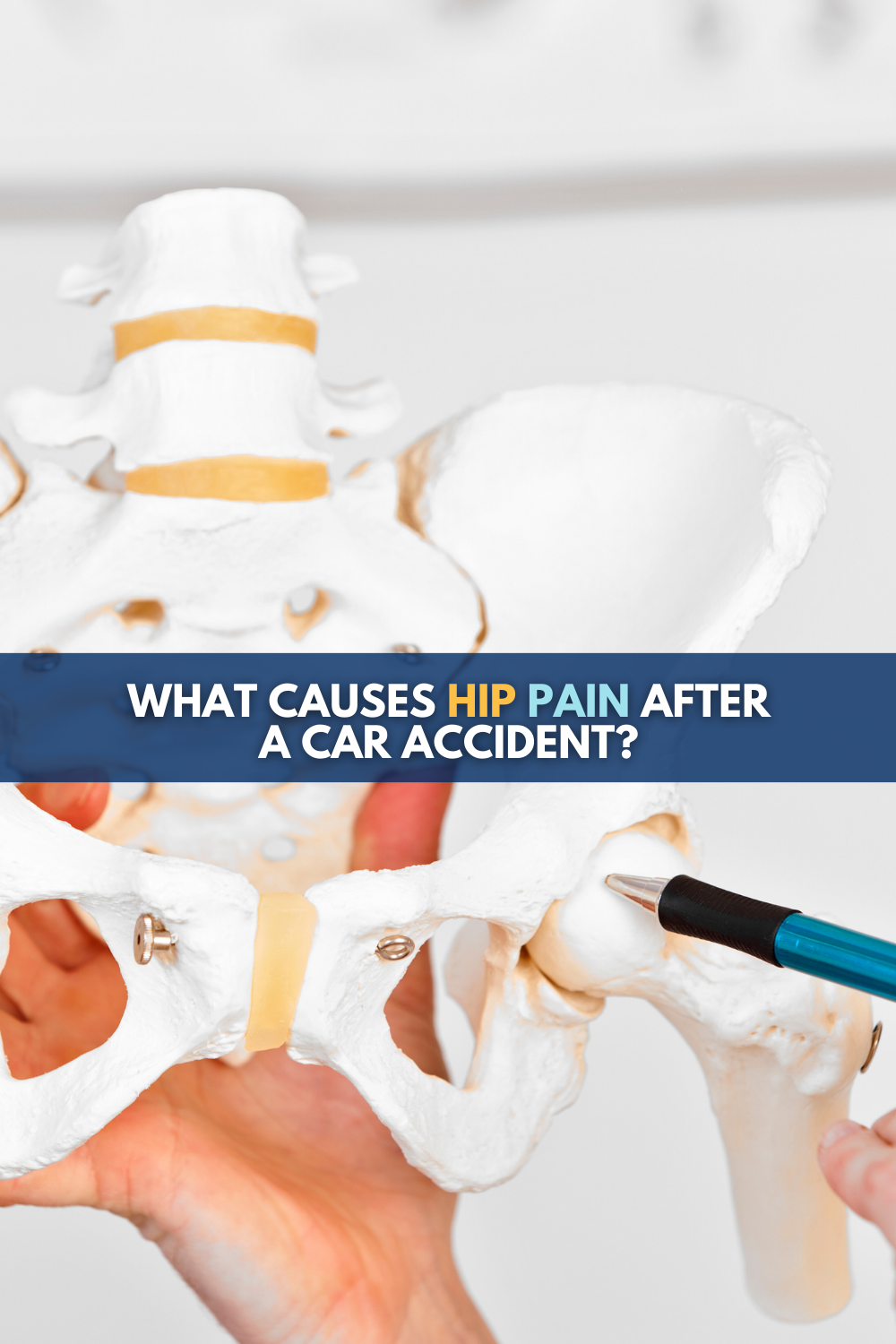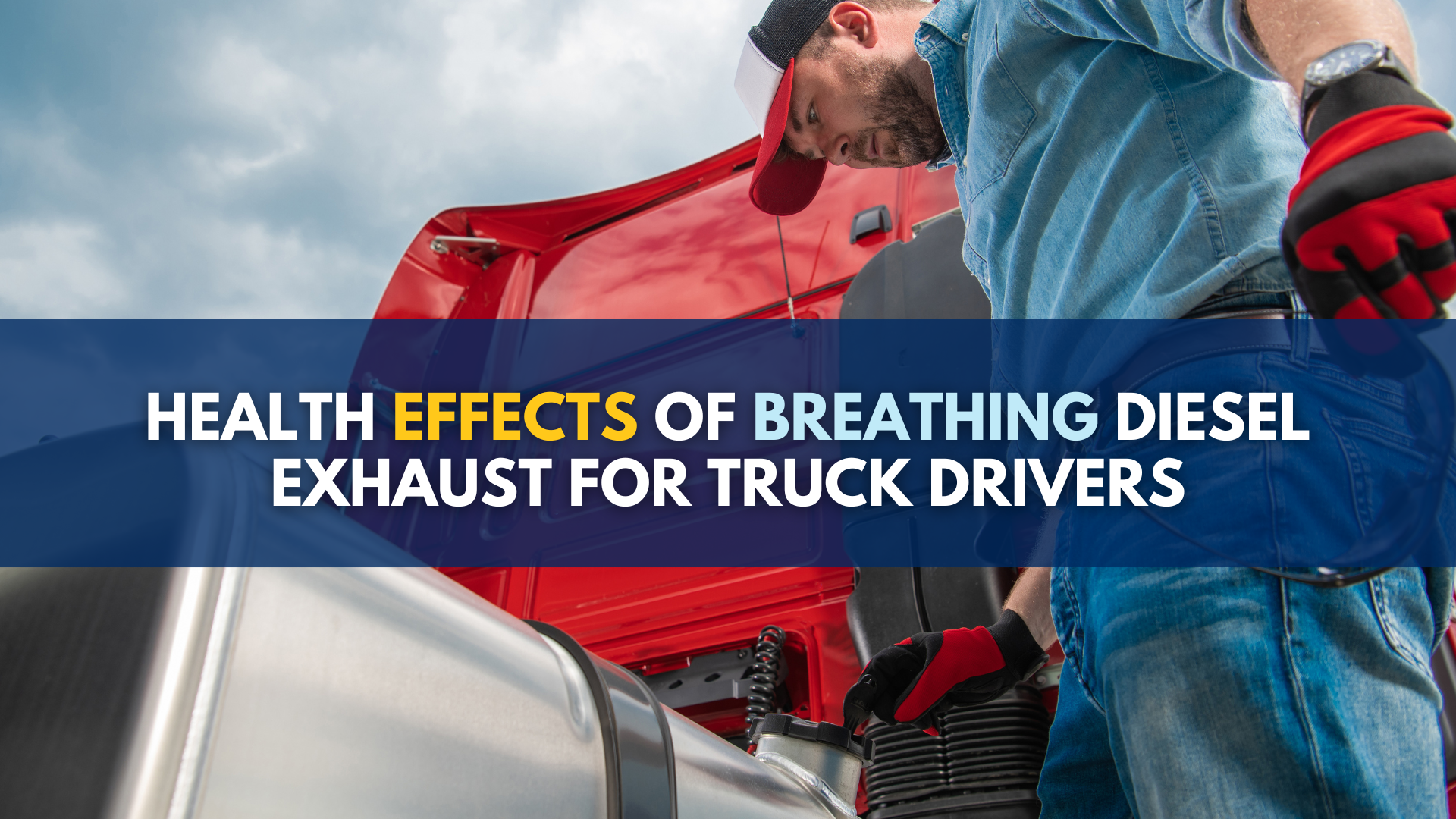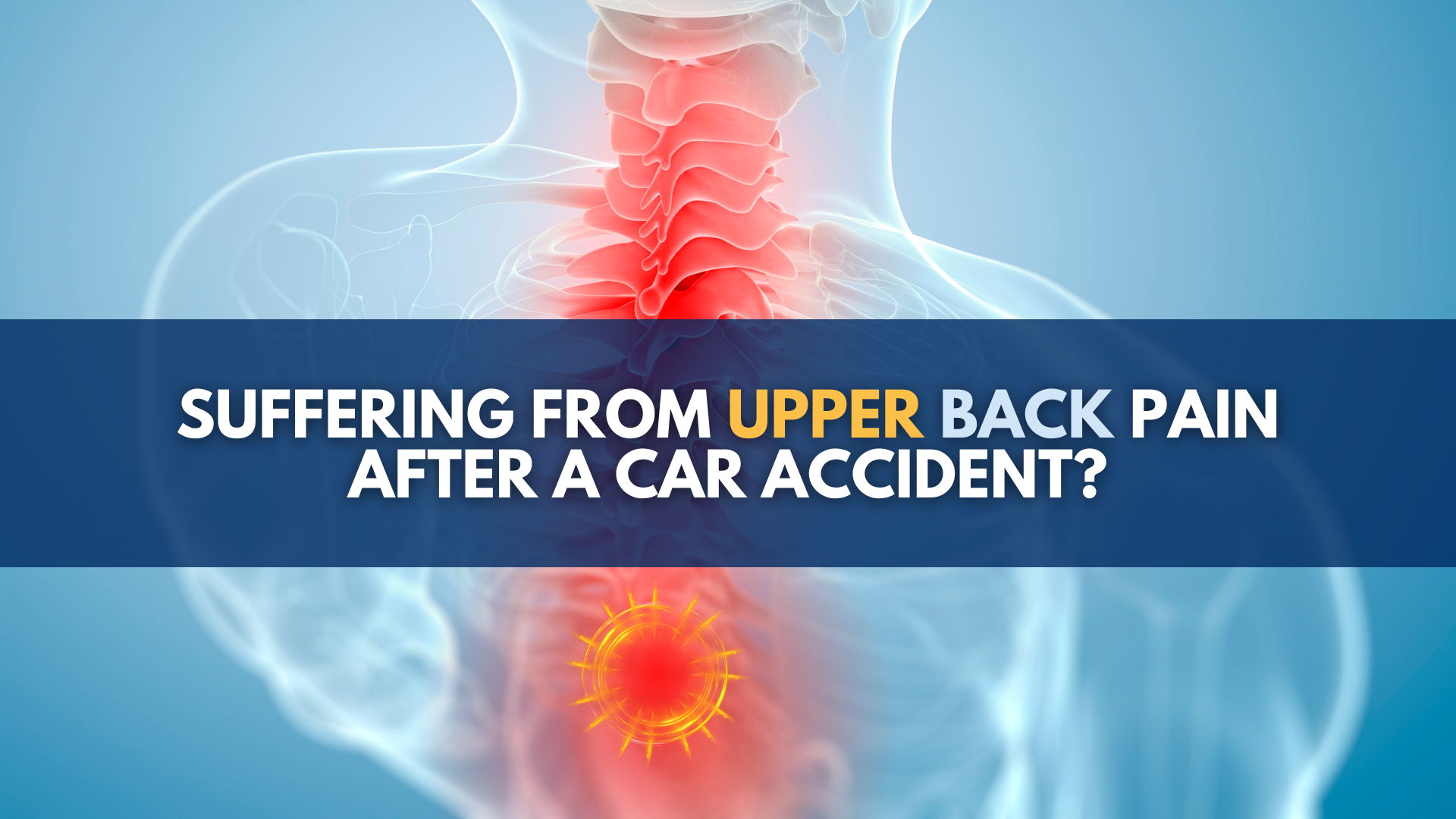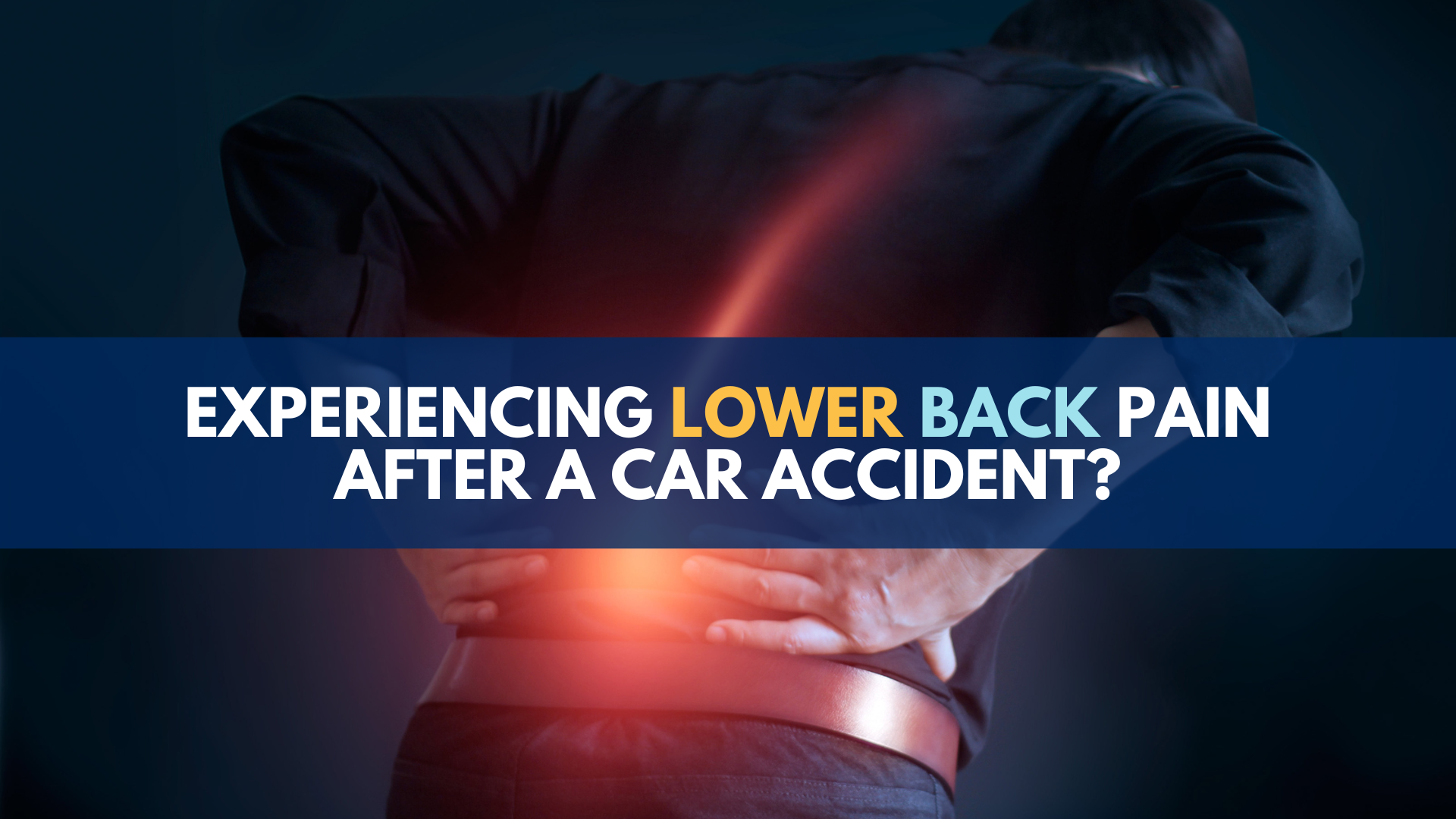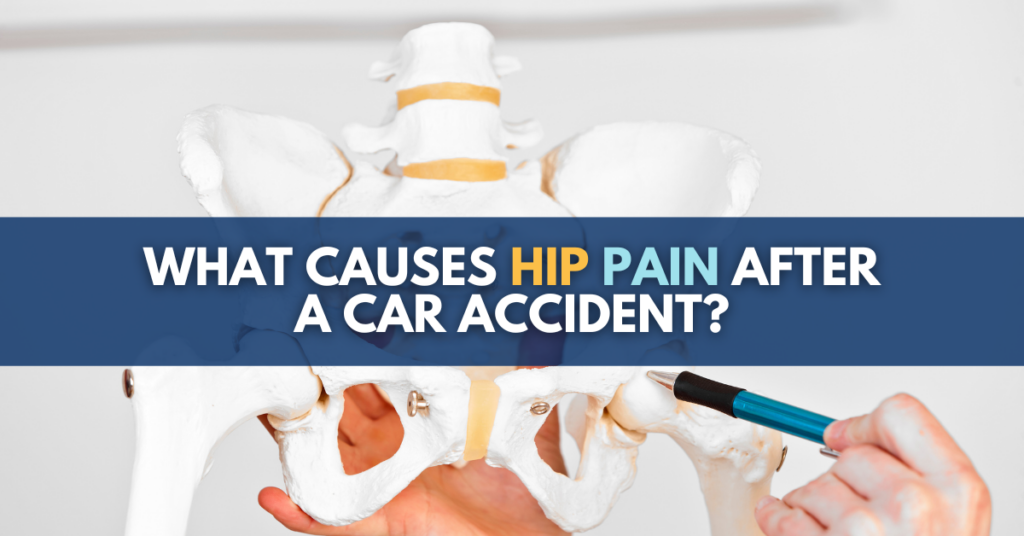
Hip pain after a car accident often occurs when the force of an automobile crash causes a victim to suffer an injury to the hip. The most common causes of soreness and discomfort is a fracture or dislocation. If untreated it can lead to long-term, chronic pain, gait change and disability.
Surgery, including partial and full hip replacement surgery, is a frequent treatment for this type of injury after an automobile crash.
What causes hip pain after a car accident?
Hip pain after a car accident is most frequently caused by fractures, bursitis, dislocation, sprains or tendonitis which are injuries related to a hip fracture.
Here are some of the most common injuries to this region of the body from an automobile crash:
- Hip bone fracture – This involves a fracture to one of the three sections of the hip: (1) the ilium (crest of the pelvis); (2) the pubis (lower part of the hip bone); or (3) the ischium (a bone that helps form the hip).
- Acetabular fracture – This involves a break in the bone of the crash victim’s hip socket.
- Bursitis – This occurs when the trauma from an automobile crash causes the victim’s bursae (which are the tiny, fluid-filled sacs that cushion the bones near joints) to become inflamed.
- Hip dislocation – This can cause excruciating pain and requires immediately medical care.
- Hip sprain – This occurs when the motor vehicle collision causes a tear of the ligaments in a victim’s hip joint.
- Tendonitis – This occurs when the crash causes inflammation of the tendons in a victim’s hip joint.
Symptoms of hip pain after a car accident
- Pain in the thigh
- Pain in the groin
- Pain inside of the hip joint
- Pain in the buttocks
- Pain in the back
- Pain in the legs
- Pinched nerves in the lower back
- Loss of movement
- Difficulty moving
- Limping
- Swelling
- Tenderness
Diagnosis
Your doctors and orthopedic surgeons will inquire about your symptoms (what they are and when they started) and then they will conduct a physical examination. They will also use diagnostic imaging testing such as X-rays, CT scans and MRIs to examine the hip joint and surrounding area to identify the source of your soreness.
Treatment
Treatment for hip pain after a car accident may include partial or total hip replacement, physical therapy, chiropractic adjustments, exercise therapy, and neurological treatment to address nerve pain and medication.
What to do if you suffered hip pain after a car accident
- Get treatment as soon as possible. When it comes to treating these injuries, the sooner a person begins treatment, the better the chances are that they will make a good recovery. As a personal injury lawyer, I always advise people that the sooner they can get the necessary and appropriate medical care, the sooner they can get back on the road to good health.
- Get a referral to an orthopedic surgeon whose specialty includes evaluating, diagnosing and caring for people suffering from hip pain after a car accident. This type of injury is often misdiagnosed. Many family doctors and chiropractors erroneously believe the pain to be referred pain from a low back injury or a knee injury that causes gait changes. If you are having soreness and discomfort, ask your doctor for a referral to a specialist and to consider an MRI. Your doctors cannot help treat your injury until they know what is causing your pain and symptoms.
- Early documentation of this injury will make it easier for you to avoid future potential billing problems with your own insurance company or health care provider. Early medical documentation soon after your motor vehicle crash will establish a close temporal connection and this in turn is very helpful to show your health insurance company or a No-Fault insurance company adjuster that your motor vehicle crash was the most probable cause of your injury. Documenting your injury early on can also help you to avoid many of the problems that arise when an insurance company later might try to deny a causal relationship and refuse to pay for medical treatment. Putting it another way, the longer the time gap before your injuries are documented, the more likely it is for your insurance company to question whether the motor vehicle crash was the cause of your injury. Early documentation by way of medical treatment helps you get better faster, and early medical documentation also creates the clear temporal causal relationship that insurance companies will be looking for when they are considering payment of bills that are being submitted to pay for necessary medical care.
- Showing a clear temporal relationship between the motor vehicle crash and documentation of when your injuries were reported, diagnosed and treated also makes it easier for your personal injury lawyer to obtain full and fair legal compensation for your injury. Most automobile crash injury cases will settle, but delays in treatment and long gaps in medical documentation will make it harder for your injury lawyer to be able to get a full and fair settlement for you if weeks or months have passed before there is any documentation in the medical records.
- Talk to an experienced personal injury attorney who has helped people with hip pain after a car accident and who knows the medicine and what these cases are worth. A lawyer who focuses on automobile crashes and who has extensive experience litigating motor vehicle crash cases can get you the help you need, including a settlement that reflects the full value for your injury. An attorney can also help you to make sure your bills are getting paid and that your settlement reflects the full measure of the future harms and losses you will face.
- Tell your auto insurance company about your injury after an automobile crash. If you live in Michigan, make sure to include this (and any other injuries you suffered and/or symptoms you are experiencing) in your application for No-Fault benefits, which is also referred to as your “written notice of injury” – which must be given to your No-Fault auto insurance company within 1 year after the automobile crash. (MCL 500.3145(1) and (4))
- Do not sign any settlements, releases, or waivers related to your automobile crash: Until you have talked with an experienced attorney who is looking out for your interests, do not sign any settlements, releases, or waivers that are presented to you by your auto insurance company, the at-fault driver’s auto insurer or any other insurance companies or persons.
Can I make a claim for No-Fault benefits?
In order to make a claim for No-Fault benefits when you have suffered you must file application for No-Fault benefits with the responsible auto insurance company within one (1) year of the automobile crash.
The No-Fault law’s “priority” rules will identify the auto insurer with which you must file your application. This auto insurance company will pay your No-Fault benefits, which cover your medical bills and your lost wages if you cannot return to work.
Can I sue for hip pain after a car accident?
If your auto insurance company refuses to pay for – or cuts-off – No-Fault benefits related to the hip pain after a car accident that you have suffered, then you can sue for unpaid, overdue medical bills, attendant care, medical mileage, replacement services and lost wages because your injuries have prevented you from returning to work.
You can also sue the at-fault driver for pain and suffering compensation as a result of your hip pain after a car accident, but you will first have to show that the other driver was at-fault for causing the collision and that you suffered a “serious impairment of body function.”
Additionally, you may be able to sue the at-fault driver for other economic damages, such as excess and future medical bills and lost wages.
How much compensation for hip pain after a car accident?
The amount of compensation for hip pain after a car accident that you may be able to recover will depend on several factors. Courts will consider whether you are owed: (1) unpaid, overdue No-Fault benefits; (2) pain and suffering damages from the at-fault driver; and (3) other economic damages.
To learn more about how much compensation your case may be worth, please check our “Settlement Calculator.”
Hip pain after a car accident compensation
Your hip pain after a car accident compensation will take several forms. If you have suffered a “serious impairment of body function,” then you can sue the at-fault driver for pain and suffering compensation. You may also be able to sue for “excess” lost wages and medical bills.
The at-fault driver who caused your automobile crash can be held liable to pay for your lost wages over and above the monthly maximum and/or beyond the three-year limit on No-Fault wage loss benefits. The at-fault driver can also be sued and forced to pay for your medical bills that exceed and, thus, are not covered by No-Fault PIP medical benefits coverage level in your auto insurance policy.
Hip pain after a car accident settlement
Factors that influence a settlement include: (1) whether your injury resulted in an impairment that affects your ability to lead your normal life; (2) your medical needs; (3) your lawyer’s experience, track record and reputation; and (4) the at-fault driver’s liability insurance limits.
This is where your choice of a personal injury lawyer is particularly important. Auto insurance companies keep tabs on attorneys and they know who the attorneys are that go to trial and who are the attorneys who don’t. Most attorneys talk a good game but it has been years since they’ve tried a case and insurance companies use this to force settlements that do not reflect full value.
The bottom line is that attorneys who are known for going to trial can settle cases for money and often much faster.
Suffering from hip pain after a car accident? Call now!
If you have suffered hip pain after a car accident, call now (800) 968-1001 for a free consultation with an experienced car accident lawyer. There is no cost or obligation. You can also visit our contact page or use the chat feature on our website.
Michigan Auto Law is Michigan’s largest and most successful law firm that specializes exclusively in helping people who have been injured in motor vehicle crashes.
Our secret? Our attorneys deliberately handle fewer cases than other personal injury law firms. This allows us to focus more time and attention on our cases.
Unlike other law firms, our attorneys are never too busy to promptly return phone calls and answer questions.
We have more than 2,000 5-Star Reviews that reflect this care and attention to detail.
More importantly, this client-focused approach leads to better and faster settlements for our clients. Michigan Auto Law has recovered more million-dollar settlements and trial verdicts for motor vehicle crashes than any other lawyer or law firm in Michigan. We’ve also recovered the highest ever reported truck crash and car crash settlement in the state.
Call now so we can start making a real difference for you.
